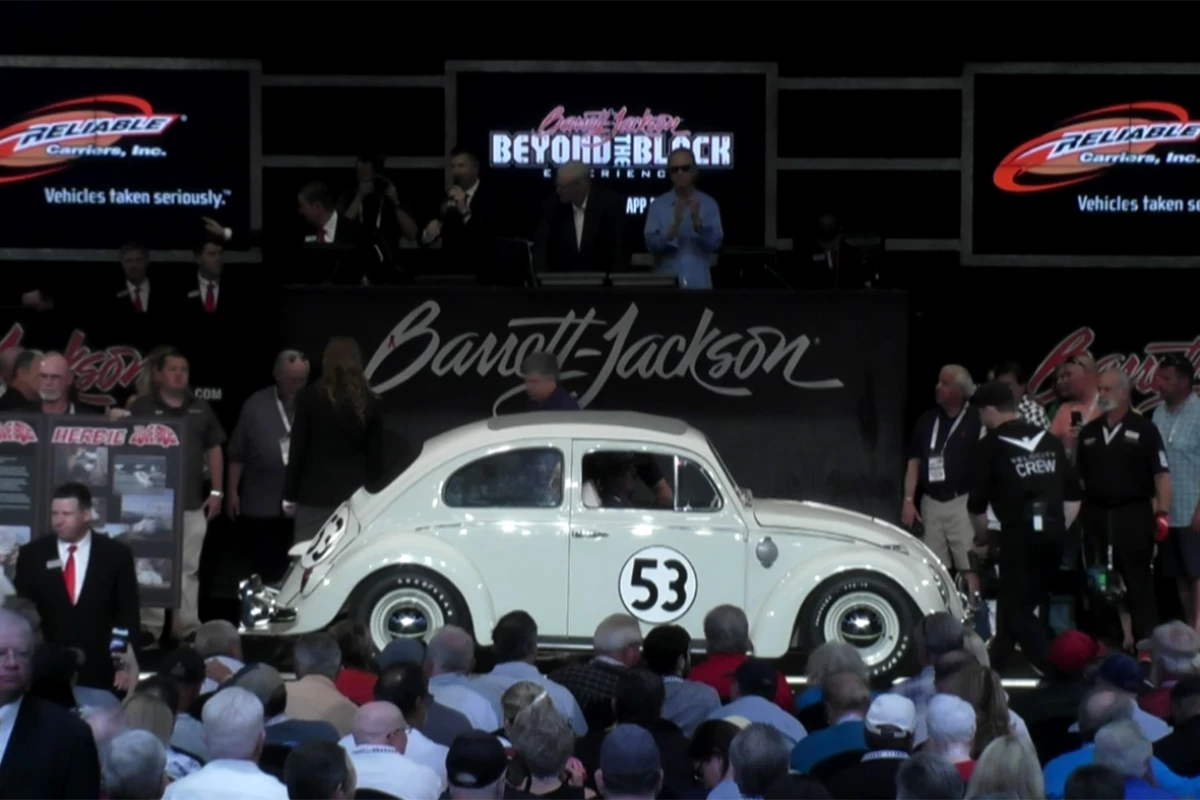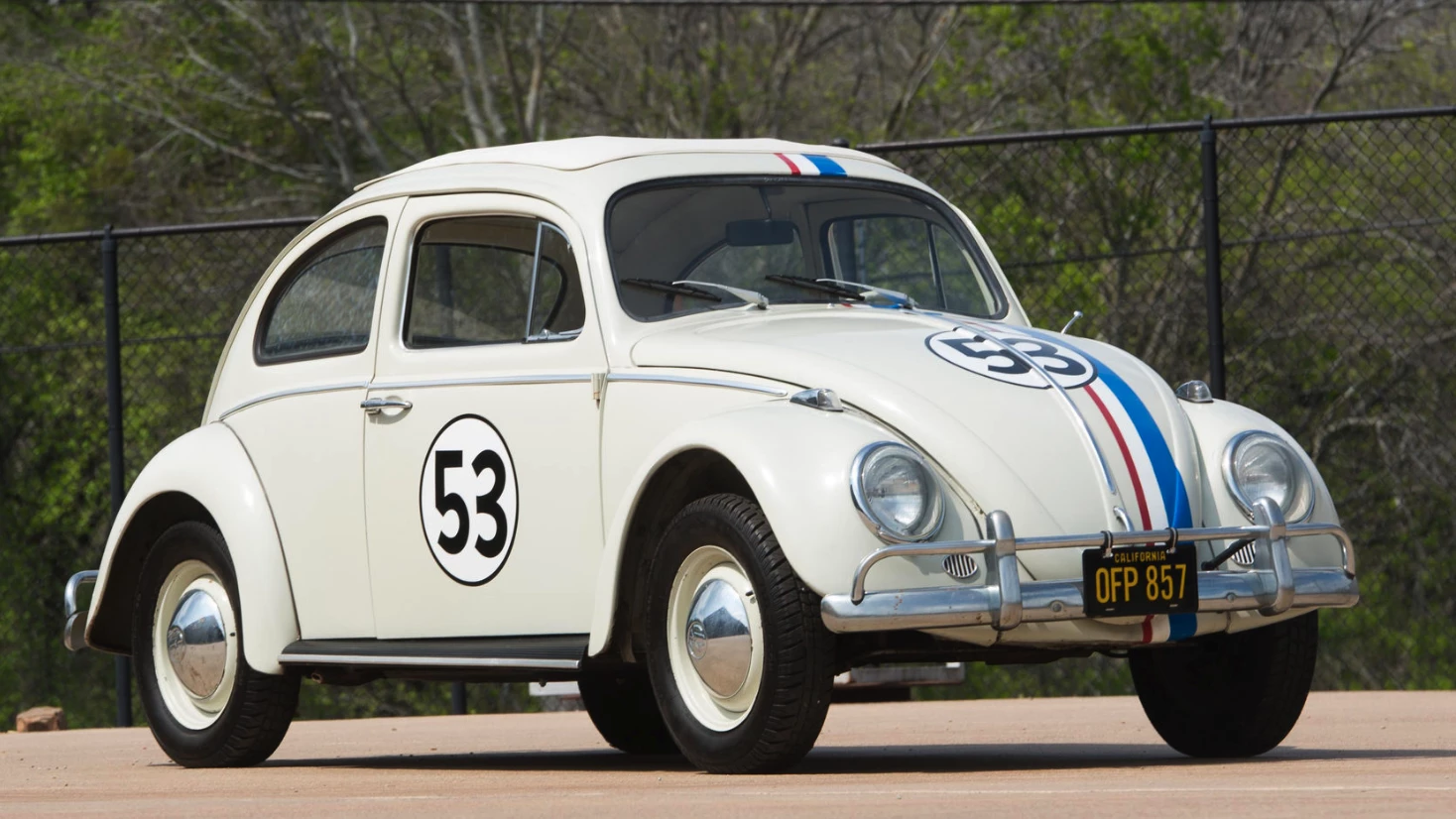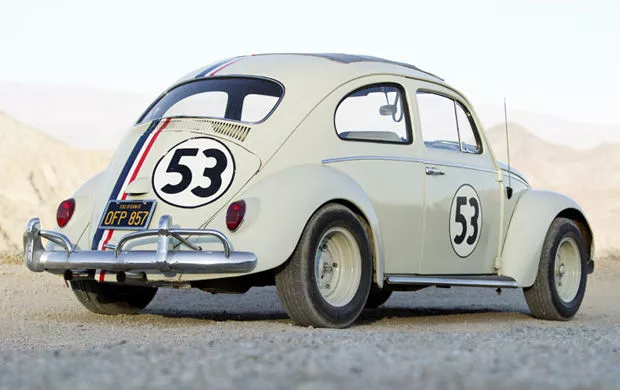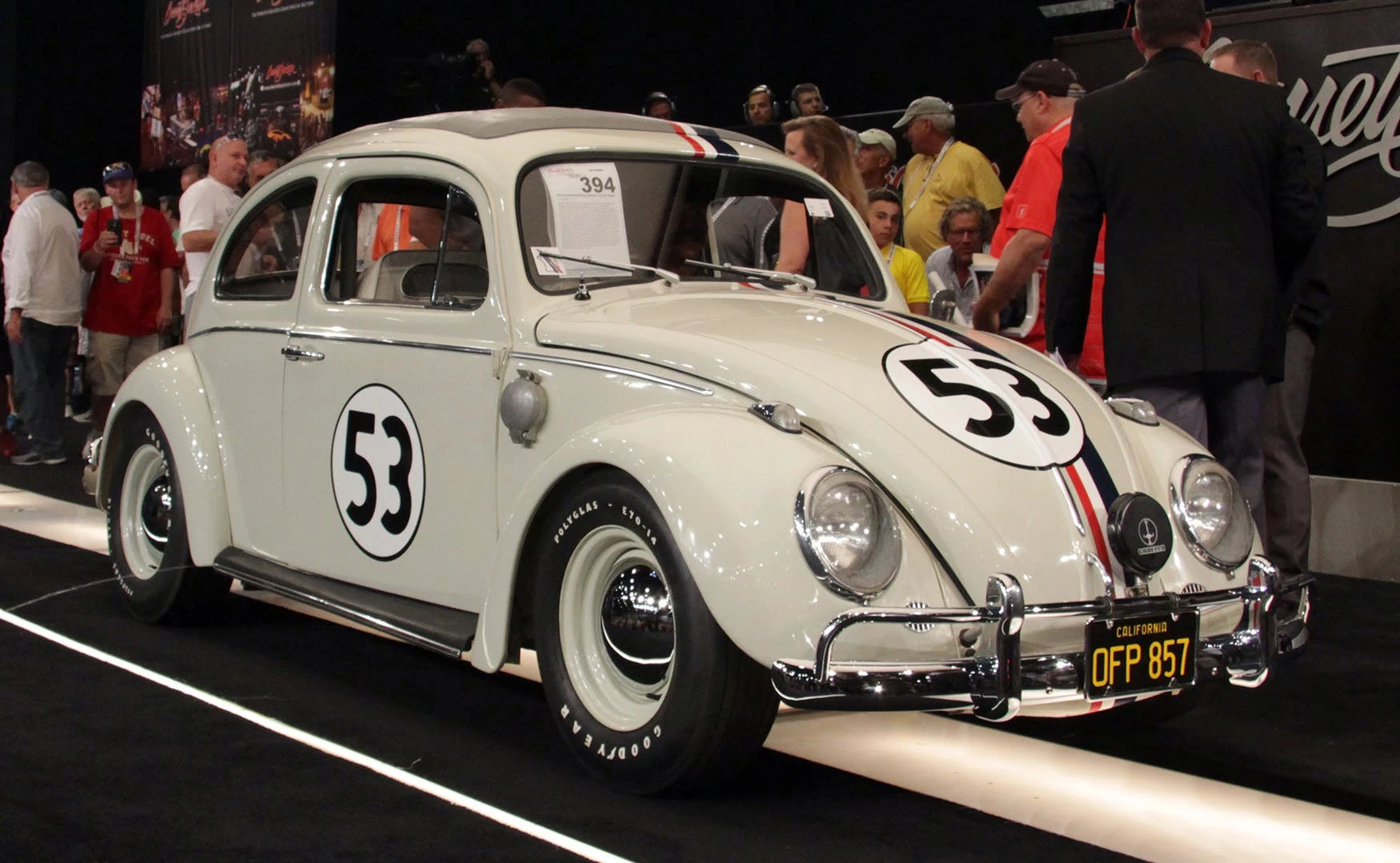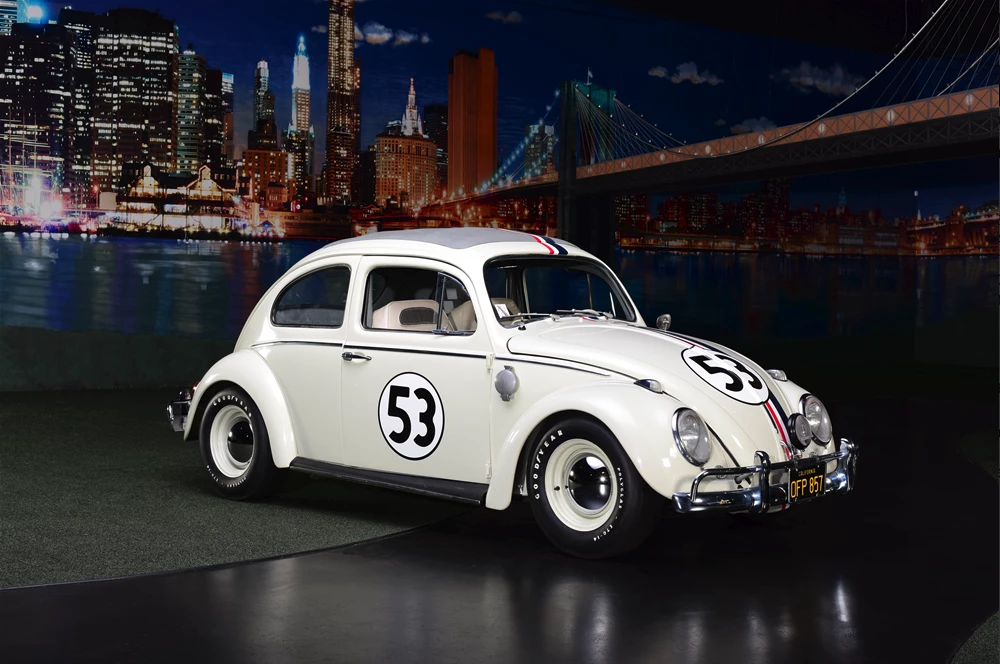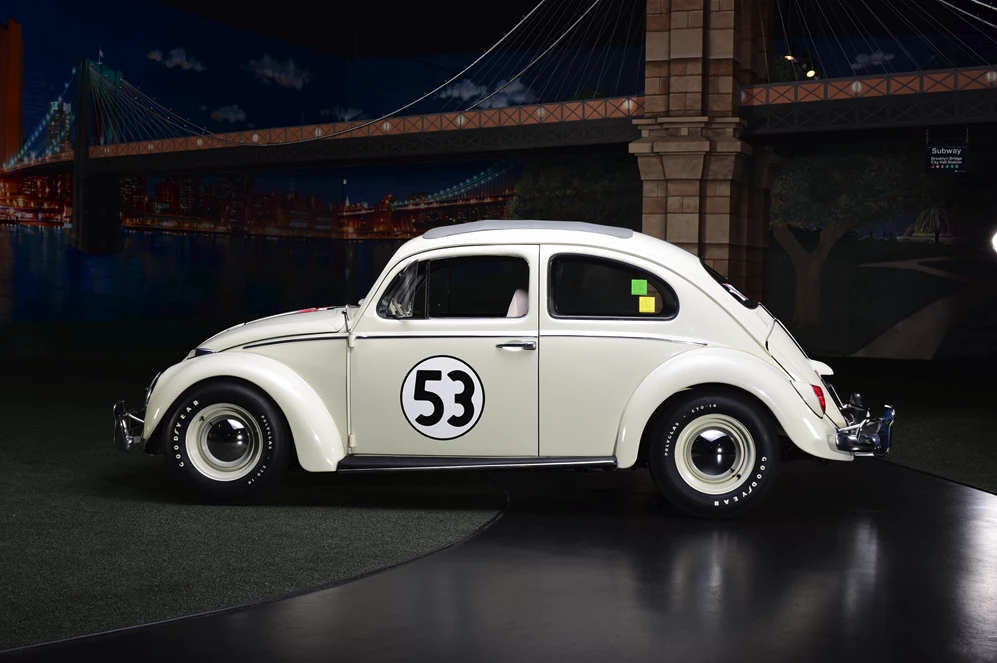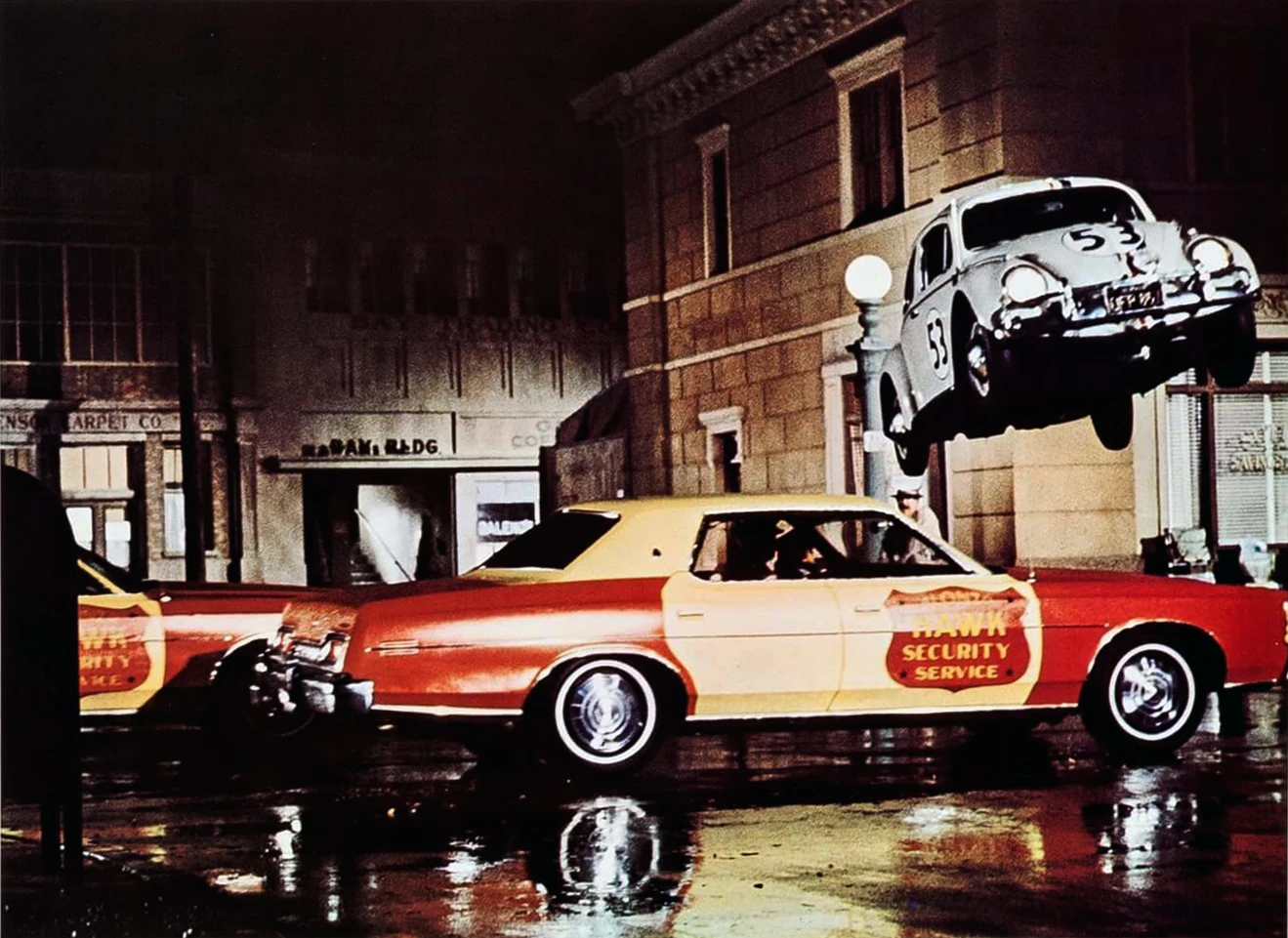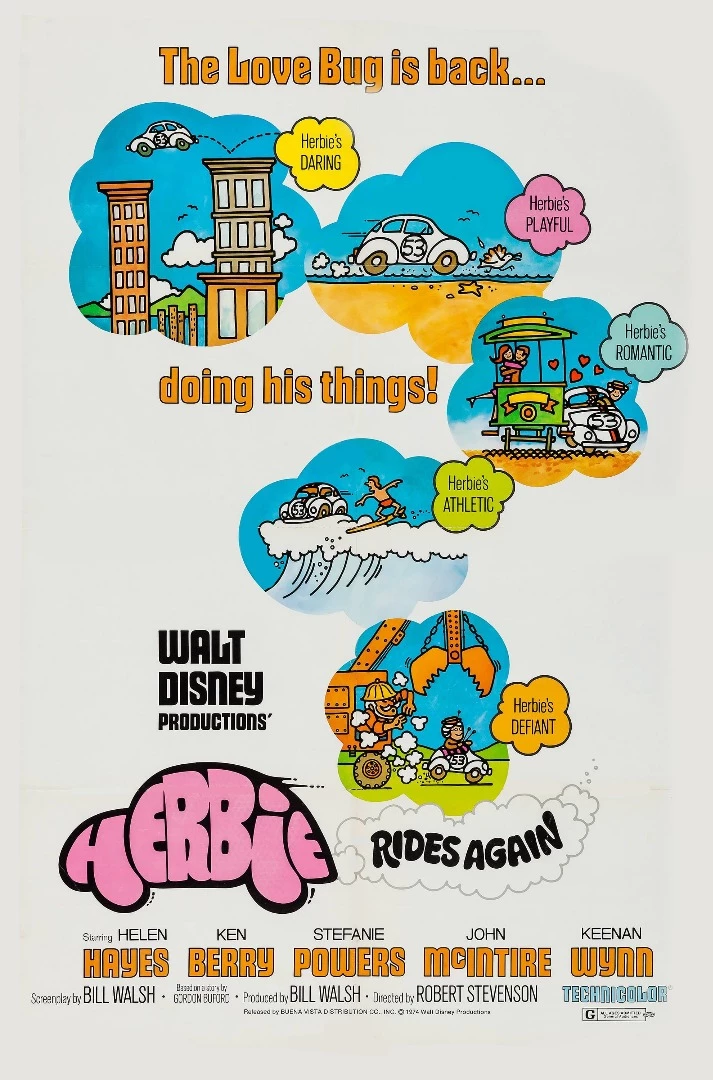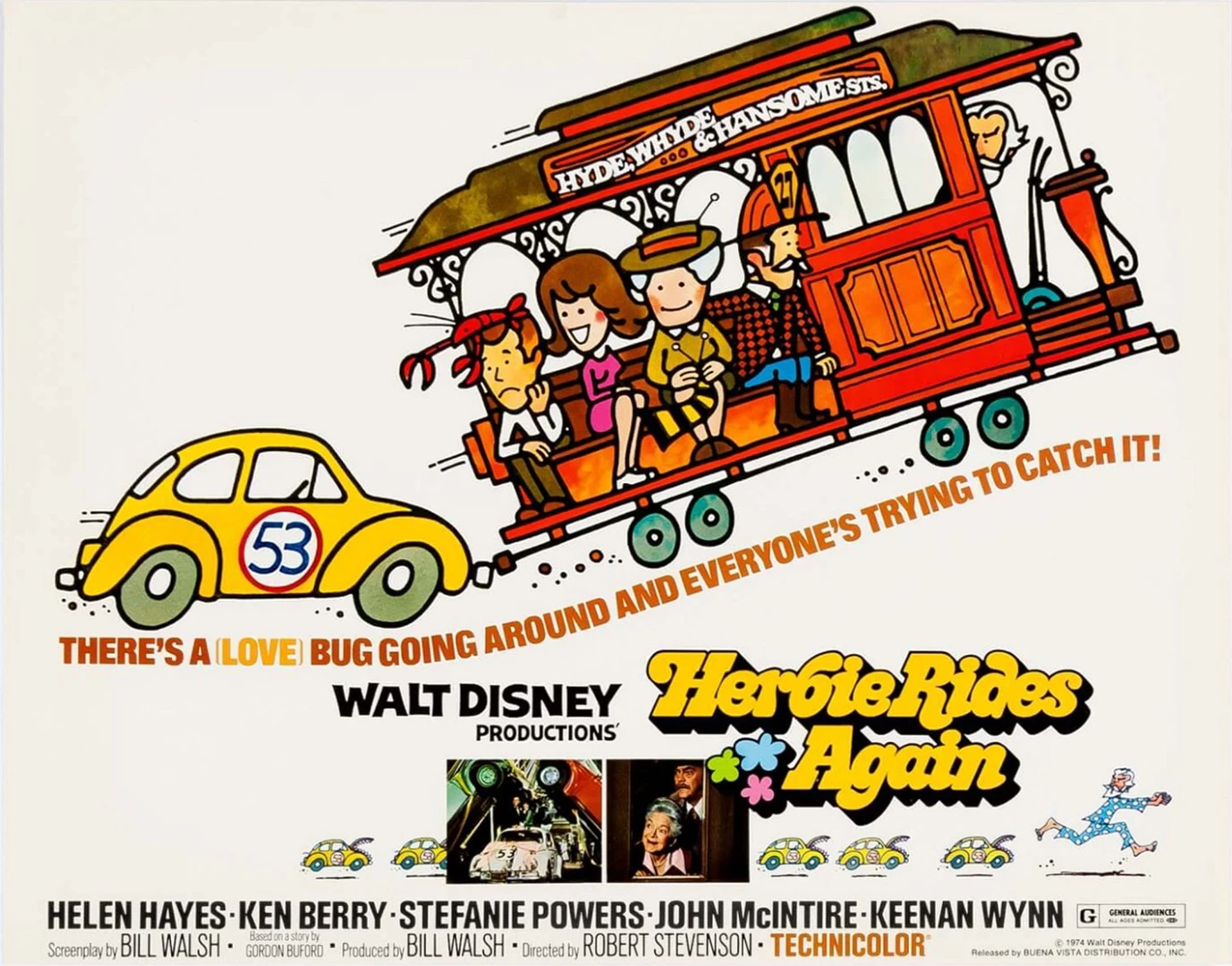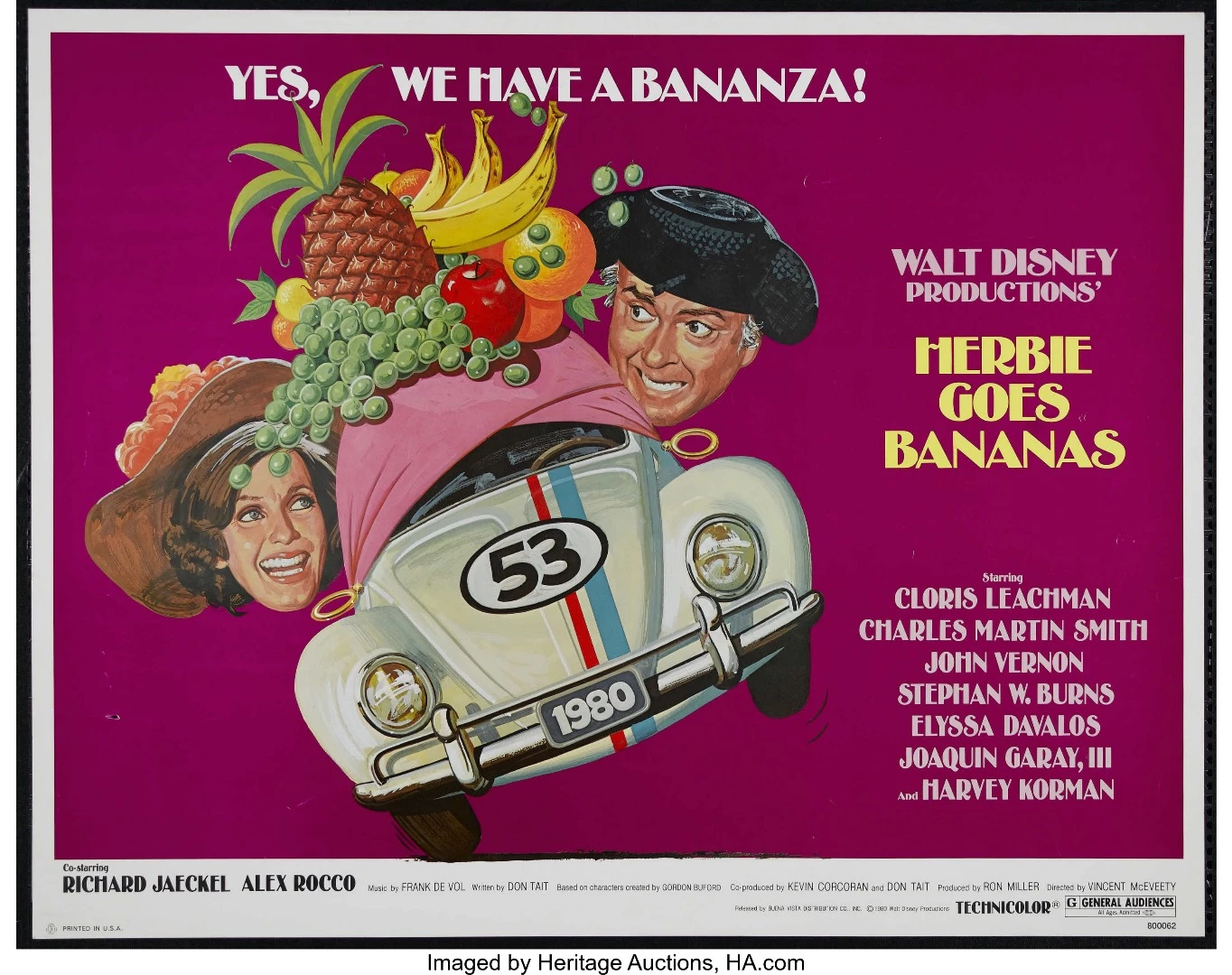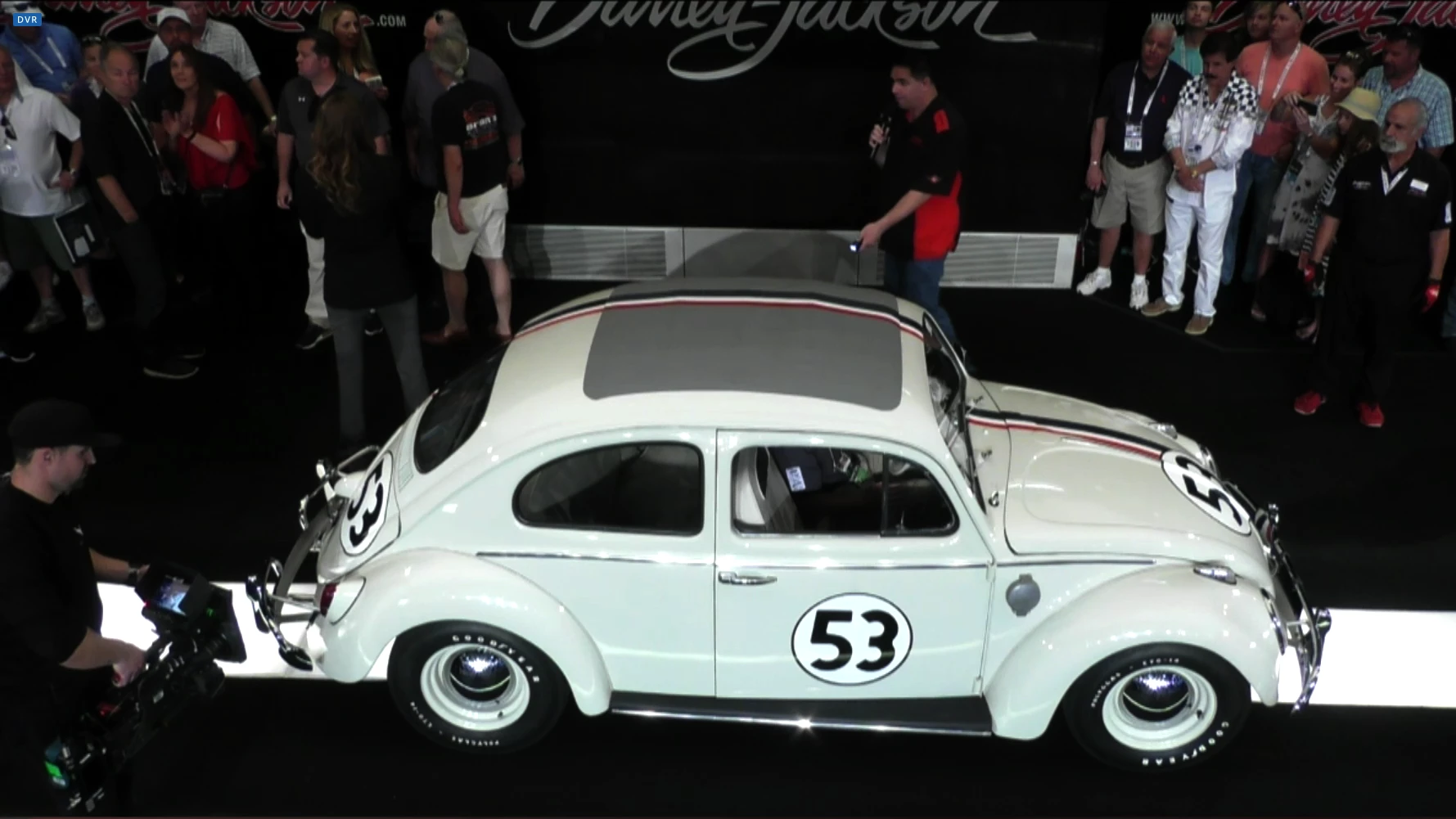The 1963 Volkswagen Beetle that starred as Herbie in Herbie Goes to Monte Carlo (1977)and Herbie Goes Bananas (1980) went to auction a second time on Saturday. This car sold at Barrett-Jackson's Palm Beach auction in 2015 for $126,000 and exactly three years later at the same auction on April 14, 2018, it sold for $128,700 to become the world's most valuable Volkswagen Beetle for a second time.
The $128,700 Volkswagen is one of more than 50 cars that appeared as Herbie during the movie and television series franchise, and one of six Herbies with screen time that are listed amongst the 50 most valuable Volkswagen Beetles ever sold.
The first Herbie movie, The Love Bug, was released in December, 1968 and the movie grossed $51 million at the box office after costing just $5 million to make. It was such a successful investment that the characters were continued onwards through Herbie Rides Again (1974), Herbie Goes to Monte Carlo (1977), Herbie Goes Bananas (1980) and the now compulsory remake, Herbie: Fully Loaded (2005). Then there was a five-episode TV series and The Love Bug , the made-for-television comedy adventure film ... and the merchandising.
The reason so many Herbies were made and at least partially consumed during the making of the film/tv series is that once the cast, cameras, lighting and sound recording gear and miniature army of support staff are assembled for the production of a feature movie, the hourly "burn rate" of money for the production is astronomical. Pirates of the Caribbean: On Stranger Tides (2011) currently holds the world record burn rate, costing $378.5 million for a run time of 137 minutes, and a cost per minute of $2,762,774. Three other movies have had a burn rate of more than $2 million a minute: Tangled (2010) cost $2,600,000 a minute, Men in Black 3 (2012)cost $2,028,302 per minute and X-Men: The Last Stand (2006)cost $2,019,231 per minute.
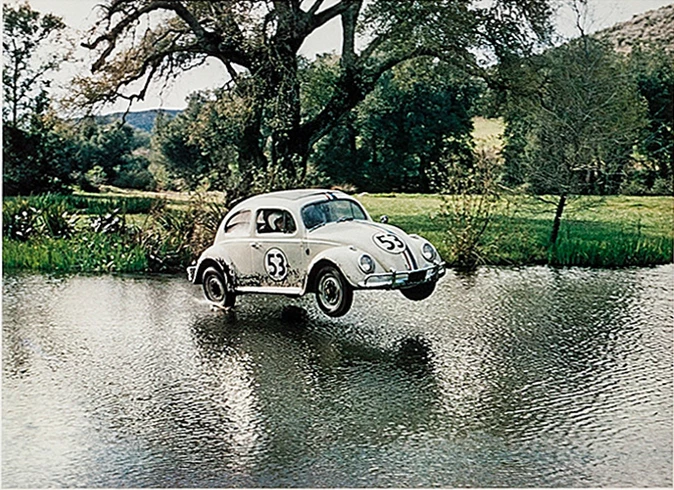
This burn rate necessitates that the show must go on, so there must be two, three or four of everything as insurance against any potential for downtime and the cost of having the assembled army sitting around waiting for a replacement.
In the case of movie cars, which can break down or crash or drown, there are often three or more identical cars prepared for filming. The first Herbie movie, The Love Bug, ran 108 minutes and cost $5 million for just $46,296 per minute, making it a money machine for the production company.
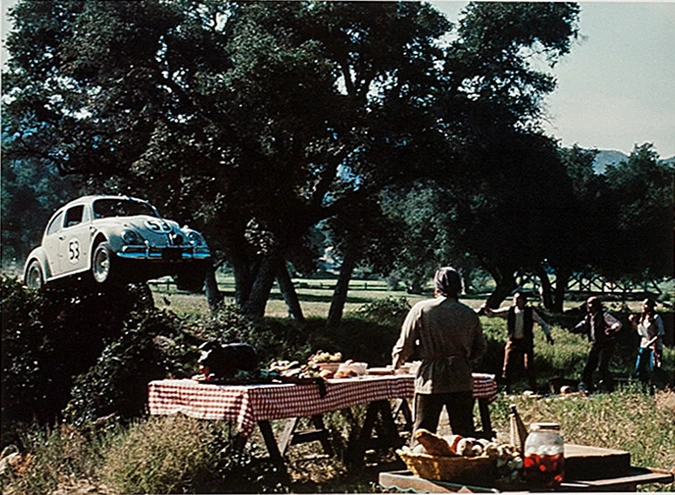
In the stunt-ridden 1980 film Herbie Goes Bananas, which was intended at the time of production to be the ultimate farewell feature film in the series, a total of 23 Volkswagen Beetles appeared as Herbie, and most of them were sufficiently destroyed during the filming of the stunts to have been discarded.
Scouring the auction records of the last few decades has yielded numerous instances of both genuine and "tribute" Herbies, and it is impossible to sort it out to our satisfaction as to how many Herbies are out there, or which ones are genuine. My guess is that we're missing another dozen that are out there in collector land, but I'm unaware of the existence of a Herbie register. There are many records of Herbies having sold for chump change between 1970 and 2010 – a period when Volkswagen Beetles were largely considered disposable.
With 21,529,464 Beetles manufactured between 1938 and 2003, the Beetle holds the world record for production of any automobile model. Only Toyota's Corolla has bigger production numbers, but the only relationship between the 1966 Corolla and its namesake of today is indeed the name.
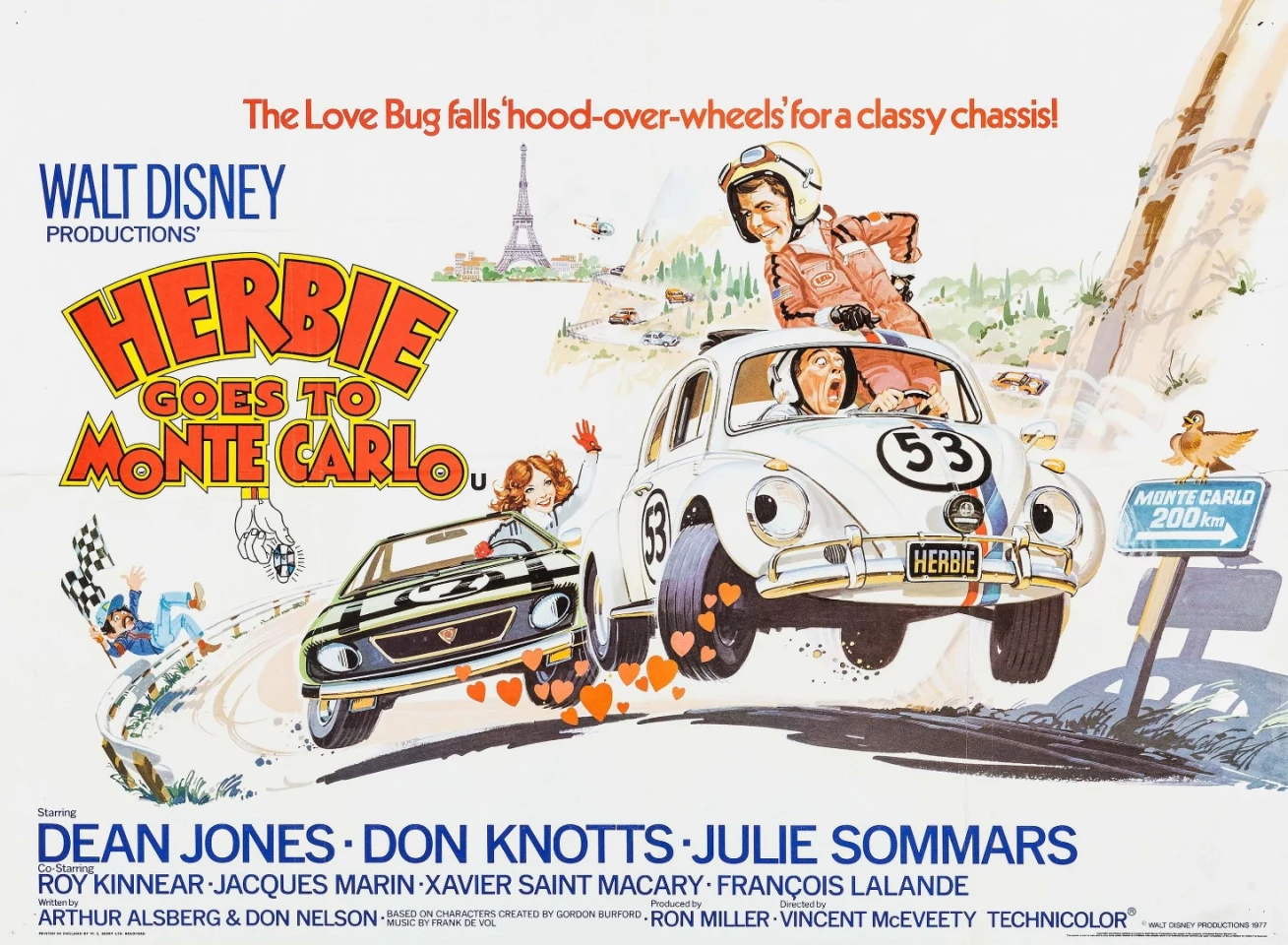
The most expensive Herbie "Replica" (not claimed to be a movie car – just a fan-sponsored reproduction) fetched $23,100 in 2008, while the cheapest Herbie replica we could find fetched $5,500 at an RM Auction in 2012.
Genuine screen-used Herbies, or at least cars claimed to be real Herbies, have also sold outside the top 50 for $28,600, $21,000 (at a Kruse auction in 2007), $20,000, $18,000, $17,000, $16,500, and as cheaply as $4,180.
When the main feature films in the movie franchise were produced, the 1963 Beetle upon which Herbie is modeled was already an "old car", being 5, 11, 14 and 17 years old at the making of the first four movies, so it is quite likely that there are many genuine Herbies out there that can never be validated.
If 23 cars were used during the filming of Herbie Goes Bananas in 1980, it is reasonable to assume that a minimum of 50 Herbies were constructed over the production of the celluloid and television films and perhaps as many as 100 in total. The problem is that those that were damaged, were disposed of without validating documents because they were considered junk. Movie cars have only recently been recognized as a valuable and collectible cultural icon.
As we found in our research for the feature article on the 100 most expensive cars ever sold, two of the 25 most valuable cars in the world today were abandoned during their lifetime because they were considered "worthless." Times and values change.
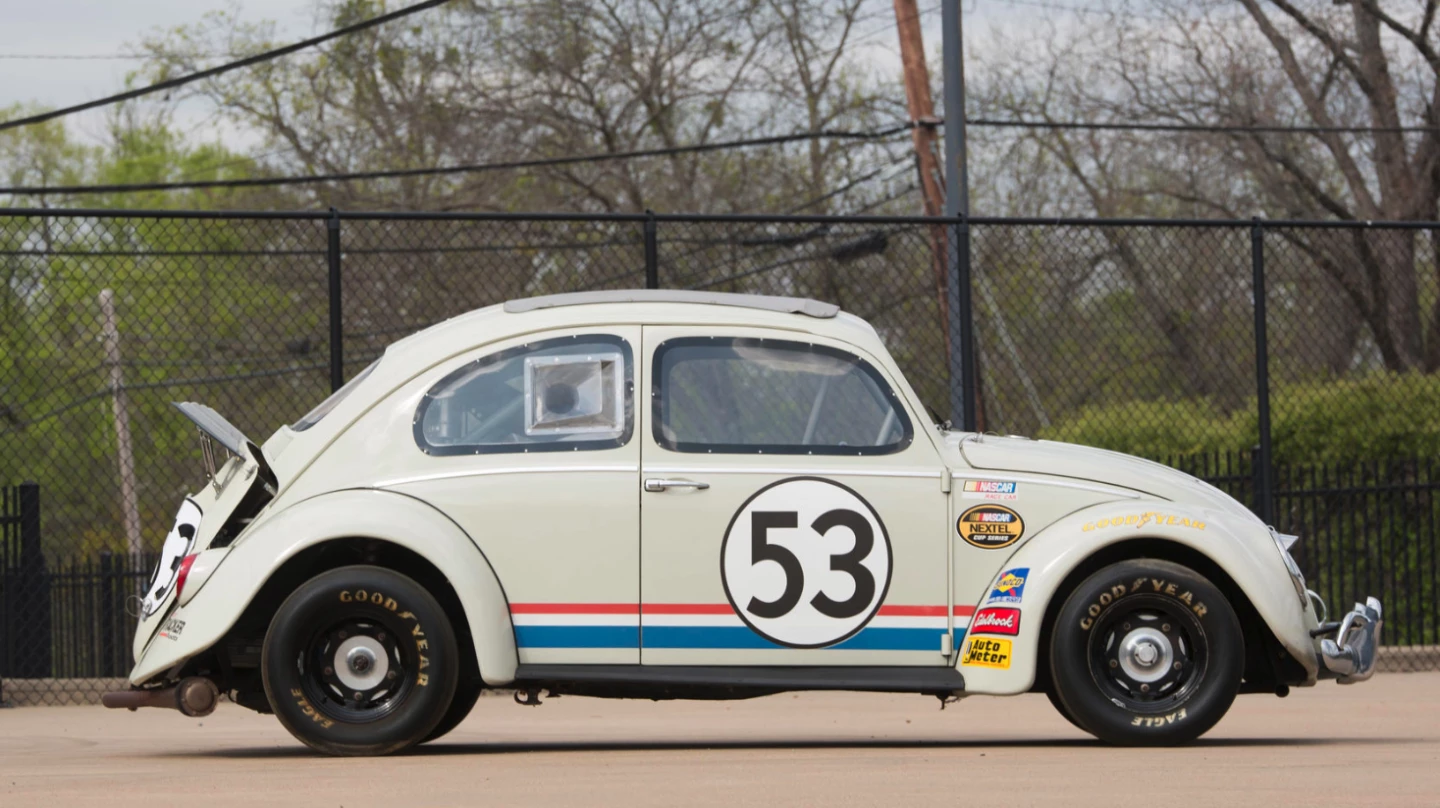
Will the real Herbie please stand up
A couple of Herbies that have appeared at auction with all the documentation to validate their movie star status and they are naturally at the top of the pile, with six of them in the 26 most valuable Volkswagen Beetles ever sold at auction.
In third place on our list of the 50 most valuable Volkswagen Beetles ever sold is the "Invisible Driver" stunt car used in Herbie Goes To Monte Carlo, which fetched $86,250 at a Bonhams New York Movie Memorabilia auction in November, 2015.
As can be seen from the interior of the car above, it was modified so that it could be driven without the driver being seen during filming. The car had previously been to auction on eBay just 12 months prior and sold for $55,250 at that time. The involvement of a world class auction company rather than appreciation in value is the primary variable in that equation, though we have discussed the auction winner's curse previously.
The winner's curse theory posits that you will always pay too much at auction, as there is an inevitability at least one person will add irrationality in bidding for any given lot, making the winning bid too high … and the larger the universe of bidders, the greater the probability of irrationality ... and the higher the price.
The third Herbie on our list is the sixth most valuable Volkswagen Beetle in history and also starred in Herbie Goes To Monte Carlo, but it is a very different car to the others. This Herbie was built specifically for performance with the original 1200cc motor replaced with a later model 1600cc motor bored to 1,740 CC, plus an extensive range of modifications performed by Speed Unlimited Manufacturing in California, ranging from high compression pistons and new cam profiles, through to suspension and every possible performance modification that enabled Herbie to run with the Porsches and Ferraris it outpaced in the movies.
All the original Herbies were the property of Disney, but this car went on to be one of the drawcards of two world famous collections: the MovieWorld Cars of the Stars Museum and the Harrah's Collection in Las Vegas.
Gooding & Co. estimated the value of the car at between $75,000 and $125,000 when it went to auction in Scottsdale in January, 2012, but it was sold without reserve and fetched just $66,000.
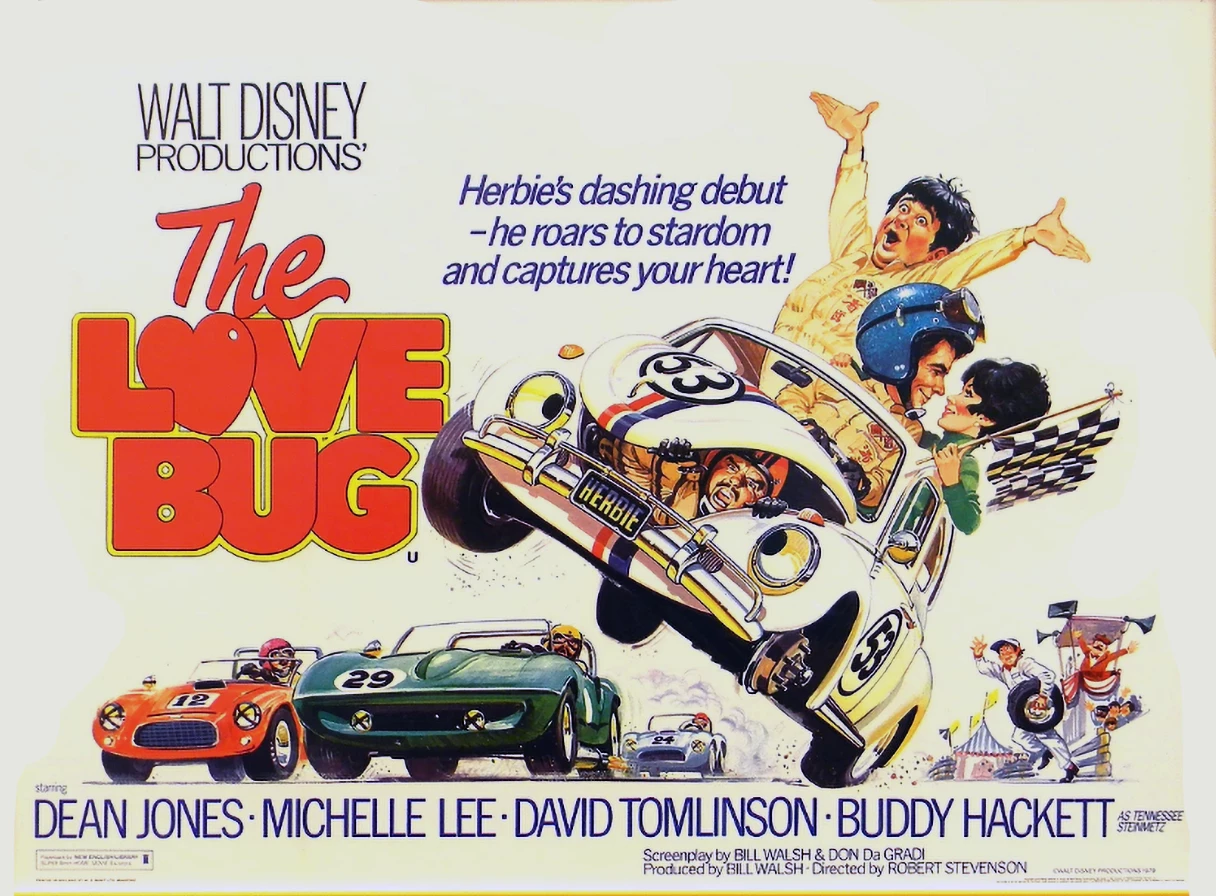
Why all the love for the "Love Bug"?
Herbie's 1968 debut was important from many different perspectives, most significantly in that it was one of the first movies where the car was one of the stars of the movie, putting it in the company of James Bond's Aston Martin DB5 in Goldfinger (1964) or Steve McQueen's Mustang in Bullit (1968). There was also Chitty Chitty Bang Bang of 1968, written by the same writer who gave us Bond – Ian Flemming.
As we have reflected before when discussing the extraordinary popularity of Herbie, The Love Bug inspired many film franchises thereafter, and helped movie executives realize that once a movie had been a hit, a slight variation on that theme had a high probability of being a hit too. Then we had sequels, series of movies, prequels and even remakes of the same hit movie of a few decades prior. Check out the top ten grossing movies of the last few years and you'll see lists almost entirely comprised of reprised characters and plot lines.
The lovable Volkswagen Beetle with a mind of its own predates all those movie series that seemed to go on forever – Dirty Harry, Police Academy, The Godfather, Jaws, Back to the Future, Alien, Terminator, Rocky, Superman, Batman, Indiana Jones, Star Trek et al. Of the big name movie franchises in history that have grossed more than $200 million, only Ian Fleming's James Bond is older, and it's no coincidence that all of the 007-driven cars that have reached auction before becoming part of museums or private heritage collections are on our top movie car list already.
There's one more factor that helped drive Herbie into a character globally recognized and adored by children. Herbie is a Disney product. Disney is a global brand with theme parks, stores, sophisticated merchandising and licensing and retail expertise, plus the media production magic that has been enchanting successive generations since the baby boomers were toddlers. So Herbie has appeared on every entertainment platform available ... from movies, television and cartoons through comics and was the subject of a vast array of toys, clothes, and other merchandising variations.
All that expertise has ensured that Herbie has been successfully commercially exploited and deeply loved by every generation of children in the 50 years since it first hit the silver screen. What's more, whereas James Bond's taste in automobiles was very upmarket, Herbie is a people's car (the literal translation of Volkswagen), and unlike buying an Aston Martin DB5, which will cost you more than a million thanks to the clever iconography of Albert R. Broccoli and Harry Saltzman, you can buy a 1963 Volkswagen with your credit card.
The wealthiest of the earlier generations of Herbie fans are now at the age where they are indulging their passions, so it's no surprise that Herbie has flexed its 14-inch tires to break its own world record of $126,500 at auction.
After all, this is THE CAR that squirts oil on the traffic policeman's foot near the start of Herbie Goes to Monte Carlo a priceless moment in movie history where a car with its own mind serves it up to a human being. That plot line will be used again.
